The whole world seems to be posting their top ten, so why not me? At the very least it’ll give me something to look back at in a year’s time and see how it’s changed.
Before I get into it, just a quick note to say that these are the games I enjoyed most in 2020. The year they were published is irrelevant. With that in mind, let’s get into it.
10. Targi (2012)
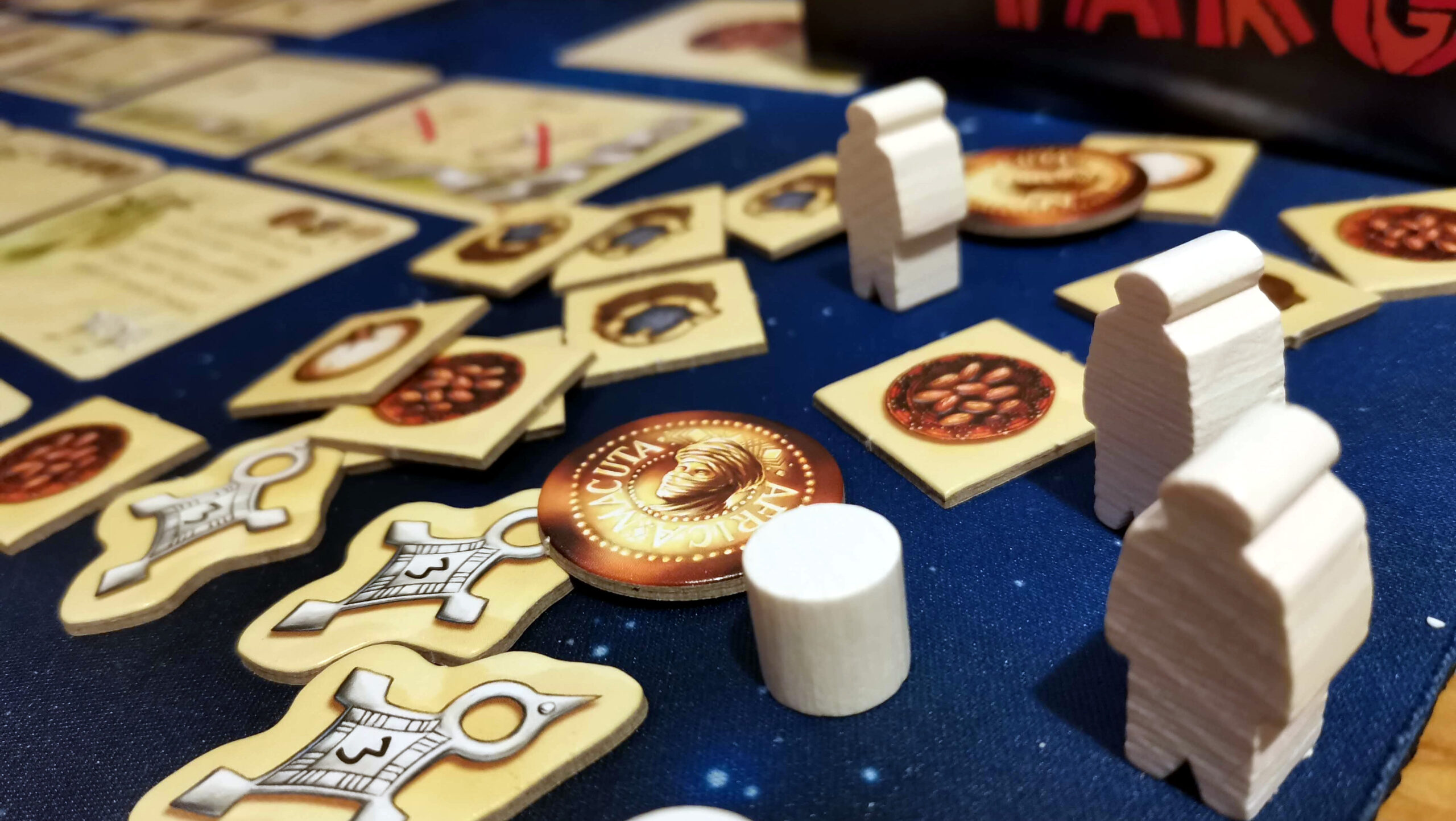
Targi came out a long time ago comparatively, but it’s really stood the test of time. It’s on the list because I really love how quick and easy it is to set-up and teach, and because there’s so much depth to the game.
A full, meaty little Euro game comprised of a few cards and pawns, and some cardboard tokens, it’s a much bigger game than its little box, and it’s a perfect two-player face-off game. Balancing collecting what you want against blocking your opponent is an artform. I would still recommend it to anyone with a regular player-two, and in fact I did – my colleague bought it over Christmas.
Read (and watch) the full review here.
9. The Red Cathedral (2020)
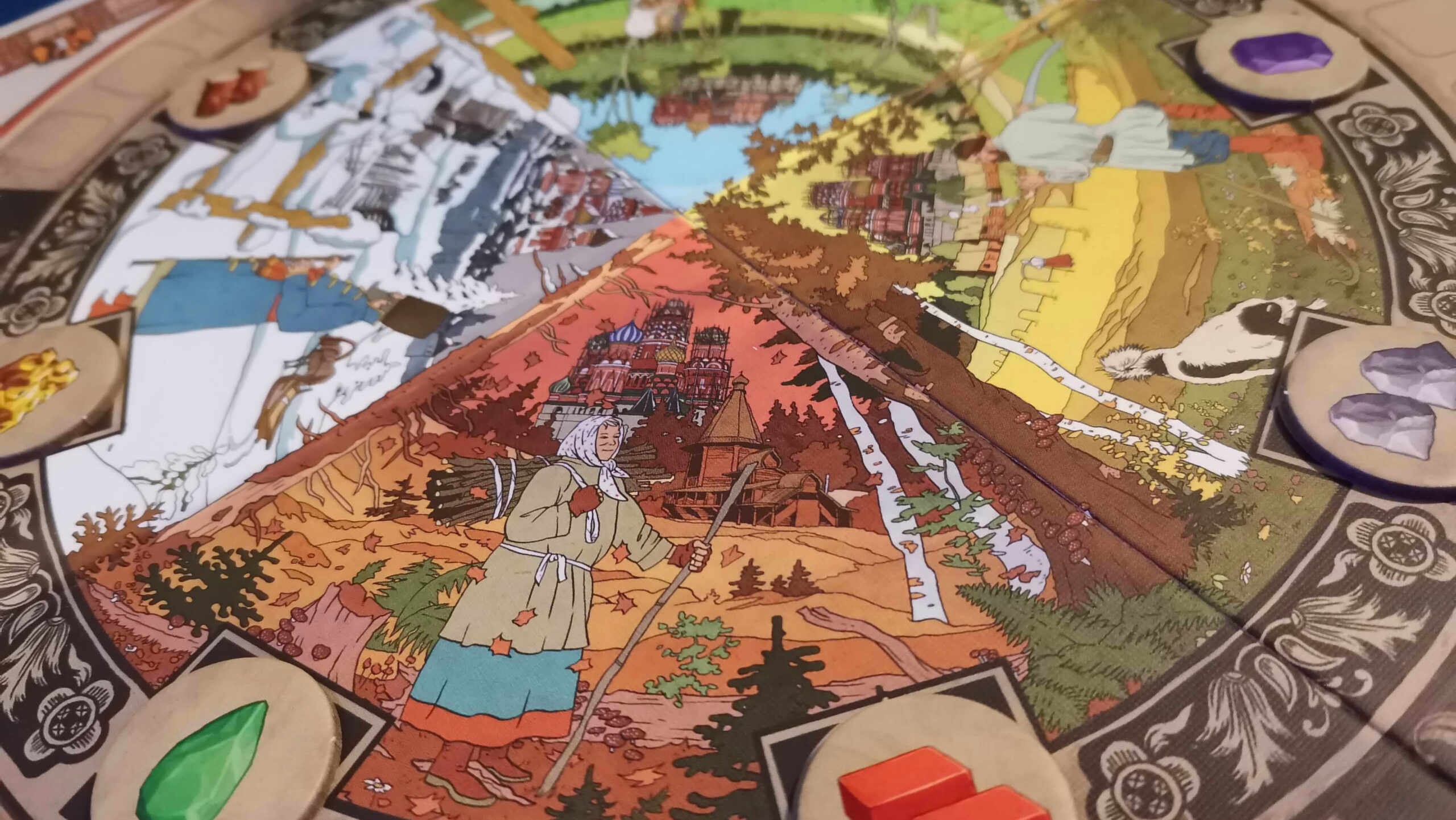
The Red Cathedral arrived late in the year, but I really fell in love with it. I’ve had time to think about why, since I wrote my review. I think I love how understated it is. It arrived without the fanfare of a big release, it’s a small box, and it hasn’t gotten a lot of love yet. I think it might more soon when fresh stock arrives, but for now, it’s not setting people’s lists on fire.
It’s beautifully made collect-and-deliver game, with a really unique dice rondel on the main board. It’s really easy to teach, there’s plenty of depth, and it doesn’t feel daunting to set-up and play on a weeknight. The solo mode plays a tight game and is ridiculously easy to run too. If you can pick it up in the next few months, I’d really recommend doing so. It’s cheap,, charming and great fun.
Read the full review here.
8. Merv (2020)
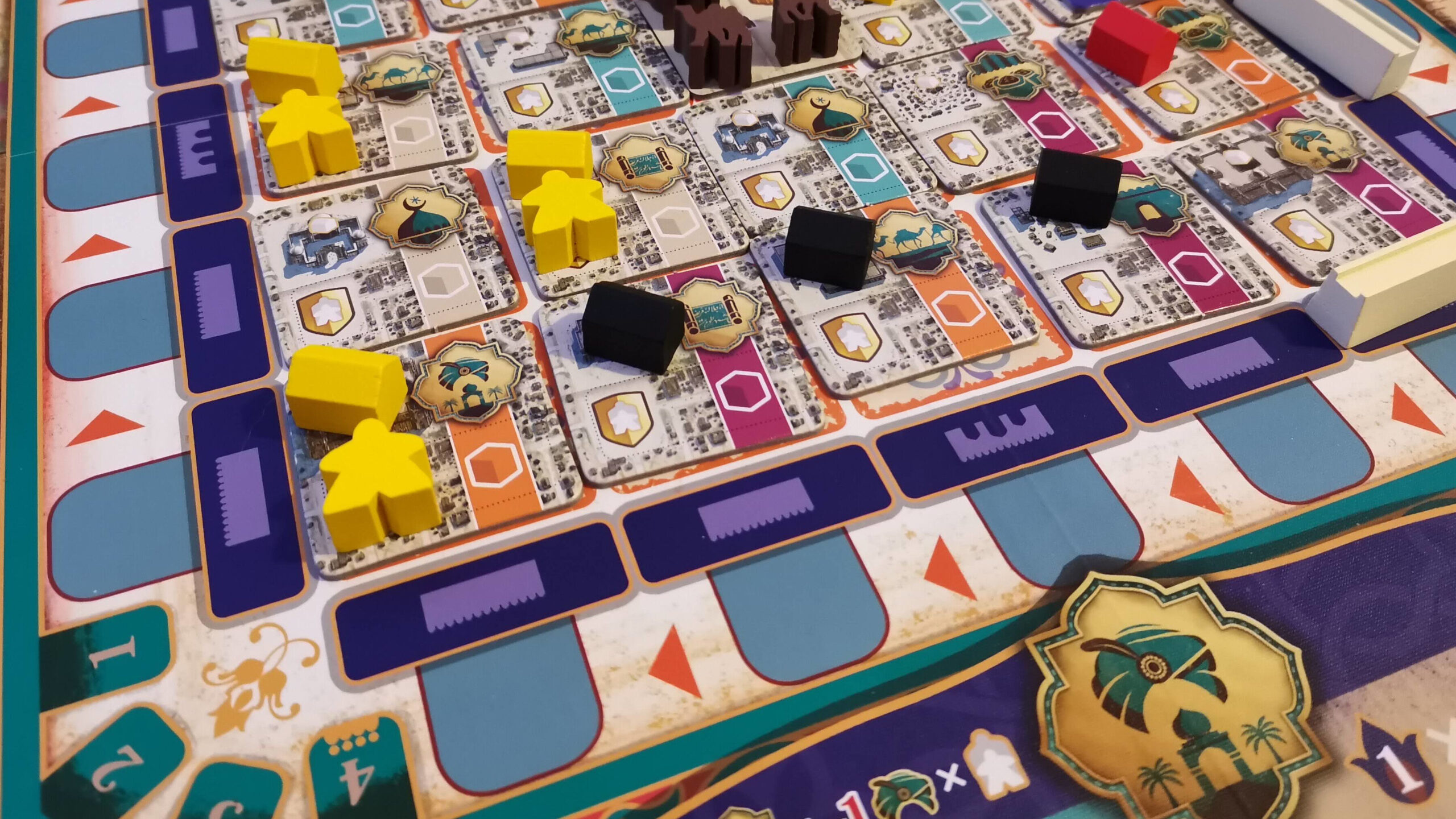
Another game that turned up late in the year (which, let’s face it, with Essen is always likely to happen), Merv is fantastic. It would probably have been higher up the list if I’d had the chance to play more three- and four-player games. It’s a great solo and two-player game, but I think it shines brightest with more people.
Merv is such a beautiful game to get on the table, and I think there’s a lot to be said for table presence with games. It just feels nice to sit in front of. It’s more than just a pretty face though, the game is solid, and like Targi up at number 10, it’s really quite interactive for a Euro game. Seeing the board develop over the course of the game is great, and it’s a nice change to have a big game without player boards. I like having everyone’s focus on the middle of the table.
Read the full review here.
7. Praga Caput Regni (2020)
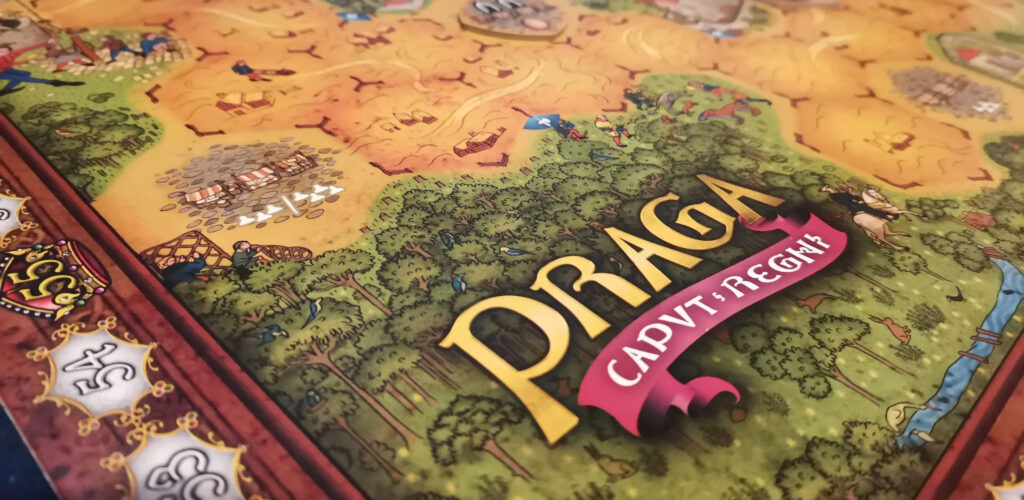
Vladimir Suchy knows how to make a good game, and Praga Caput Regni is exactly that – a good game. It’s an excellent game in fact. Like Merv, it’s bright and colourful, and it’s got loads of depth. It’s quite confusing to look at at first, but once you’ve played it once you can quickly see what’s going on.
I love how there are loads of different things you can do on any turn, but there are so many variables that come into play with every one of those turns. Marginal advantages in the early rounds can snowball for good players, and it really does feel like every strategy can win, it’s just a question of who’s best at executing theirs.
It’s really hard to categorise Praga, as there’s no main mechanism like worker-placement or card-drafting. It’s all about action selection and making the most of your limited turns. It’s fantastic, and I can see myself playing it even more over the next year.
Read the full review here.
6. Nemo’s War: Second Edition (2017)
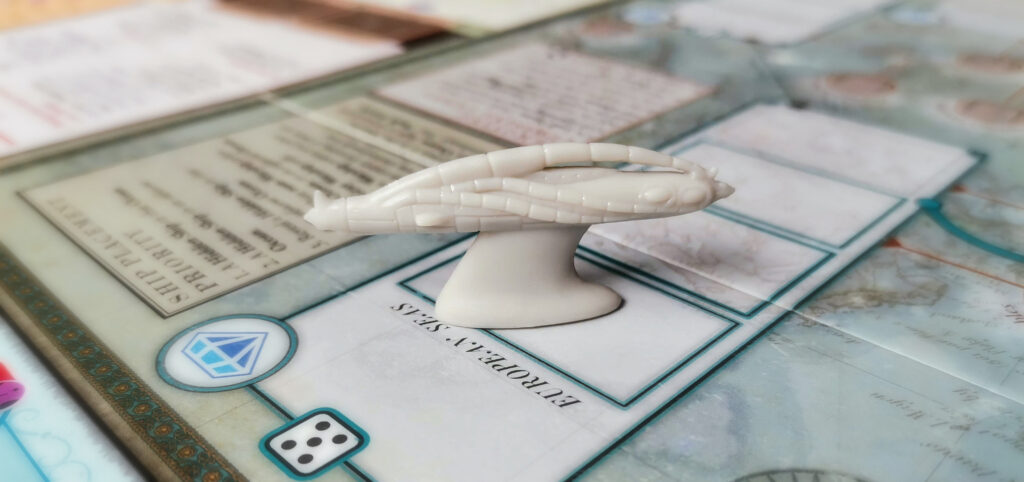
Nemo’s War is the only ‘designed for solo play’ game on this list, which surprised me as I chose the games. Lockdown last year meant I had to play a lot more solo games than I might have otherwise chosen, but this one was the one that stood out.
It’s a clever game of travelling the world as Jules Verne’s Captain Nemo, battling or evading the world’s navies, who are amassing above the waves. The game is driven by dice rolls, and clever use of chance and probability means that it’s a game that never feels like it’s completely driven by luck.
The presentation is immaculate throughout, thanks to the work of artist Ian O’Toole (also responsible for Merv above), and it adds so much to the game. If you enjoy the story and setting of Twenty Thousand Leagues Under The Sea, you will love this game. The addition on multiple motives for play is great too, Your choice at the start of the game will dictate how it gets scored at the end, and which actions you’ll be chasing or avoiding.
Taking the time to absorb myself in the story of my game, and weave my own narrative with a glass of whisky, was one of my stand-out moments from the year.
Read (and watch) the full review here.
5. Maracaibo (2019)
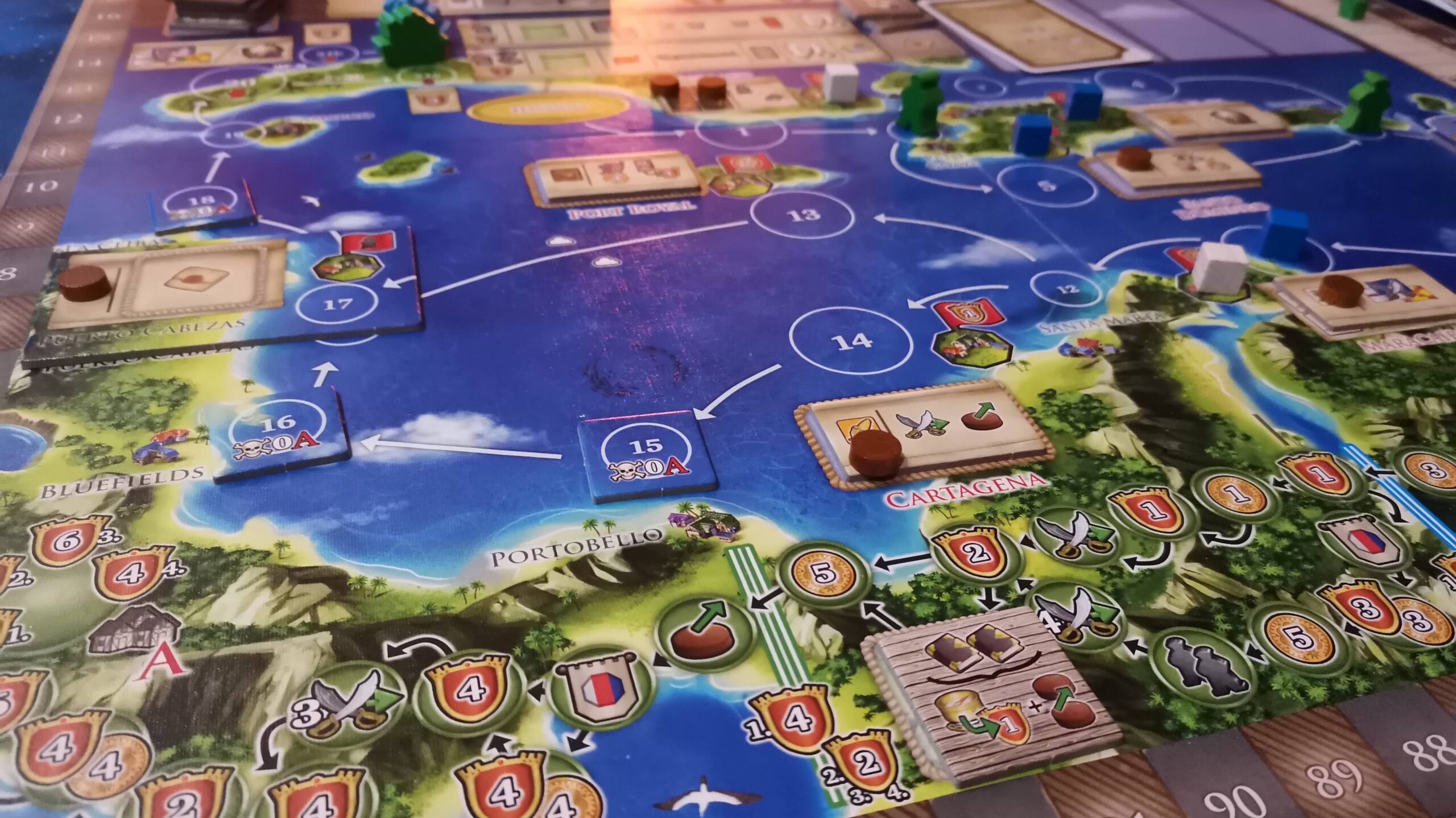
Maracaibo is the subject of plenty of debate, around which is Alexander Pfister’s best game. This and Great Western Trail are neck and neck for a lot of people, but Maracaibo edged it out for me in 2020. The addition of the automa opponent and a really good campaign mode made playing it solo a really rewarding, interesting thing.
If you’ve not played it, the game is about trading and gaining influence with the colonial powers in the 17th century Caribbean. Over the course of four rounds, players will sail around the islands trading, engaging in combat, exploring, and growing their crew. A deck of cards drive the game, and the way they can be used for three different things (buying for their power, trading, or turning in to complete quests) means lots of tricky decisions for players.
There’s an expansion coming this year, which I can’t wait to play, and I’ve got two or three more games to see out the rest of the campaign story. It’s a fantastic game which plays well at any number of players from one to four.
Read the full review here.
4. Teotihuacan: City Of Gods (2018)
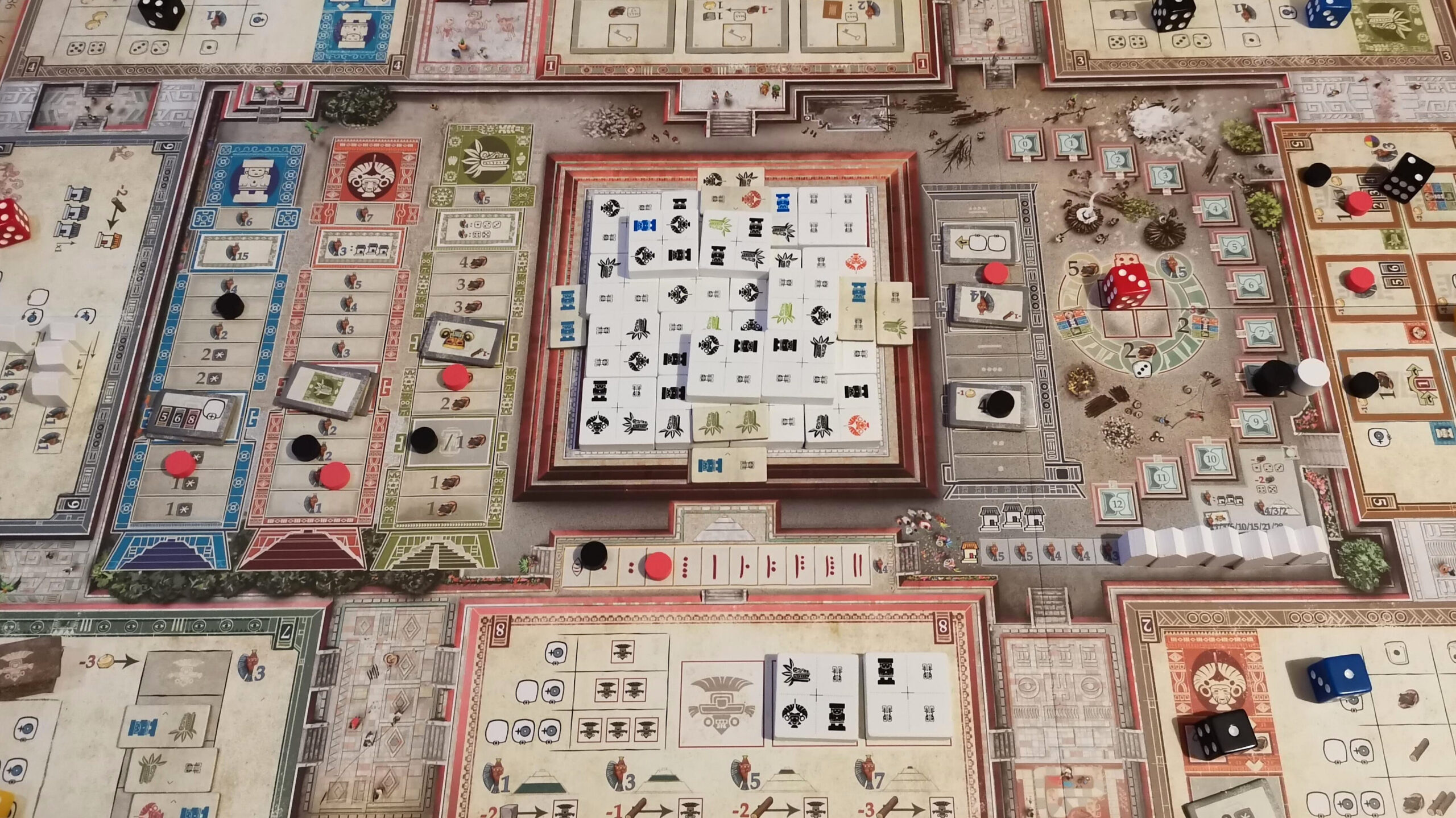
Daniele Tascini has been turning out the ‘T’ games over the last few years (Tzolk’in, Trimegsitus, Tekhenu), and shows no sign of abating. Teotihuacan was my first, and I still really enjoy it. It’s a game about building the ancient Aztec city, its great pyramid, and the famous avenue of the dead.
The way that dice are used, but never as dice, is really good. As they move around the board, rondel-style, they ‘age’ and become more powerful when performing actions. When they die and ascend, they’re reincarnated as low-power workers, and take their place on the avenue of the dead.
Building and decorating the big pyramid in the middle of the board is really satisfying, and does a great job of engaging people with what is a heavy, and relatively dry Euro. That’s my idea of heaven, but it’s not for everyone. David Turczi’s solo mode is really good, a really tough opponent, but that’s to be expected, he makes some really good solitaire opponents.
Variable setup placement keeps the game fresh, and I’ll be picking up one or two of the expansions this year for sure.
Read the full review here.
3. Nusfjord (2017)
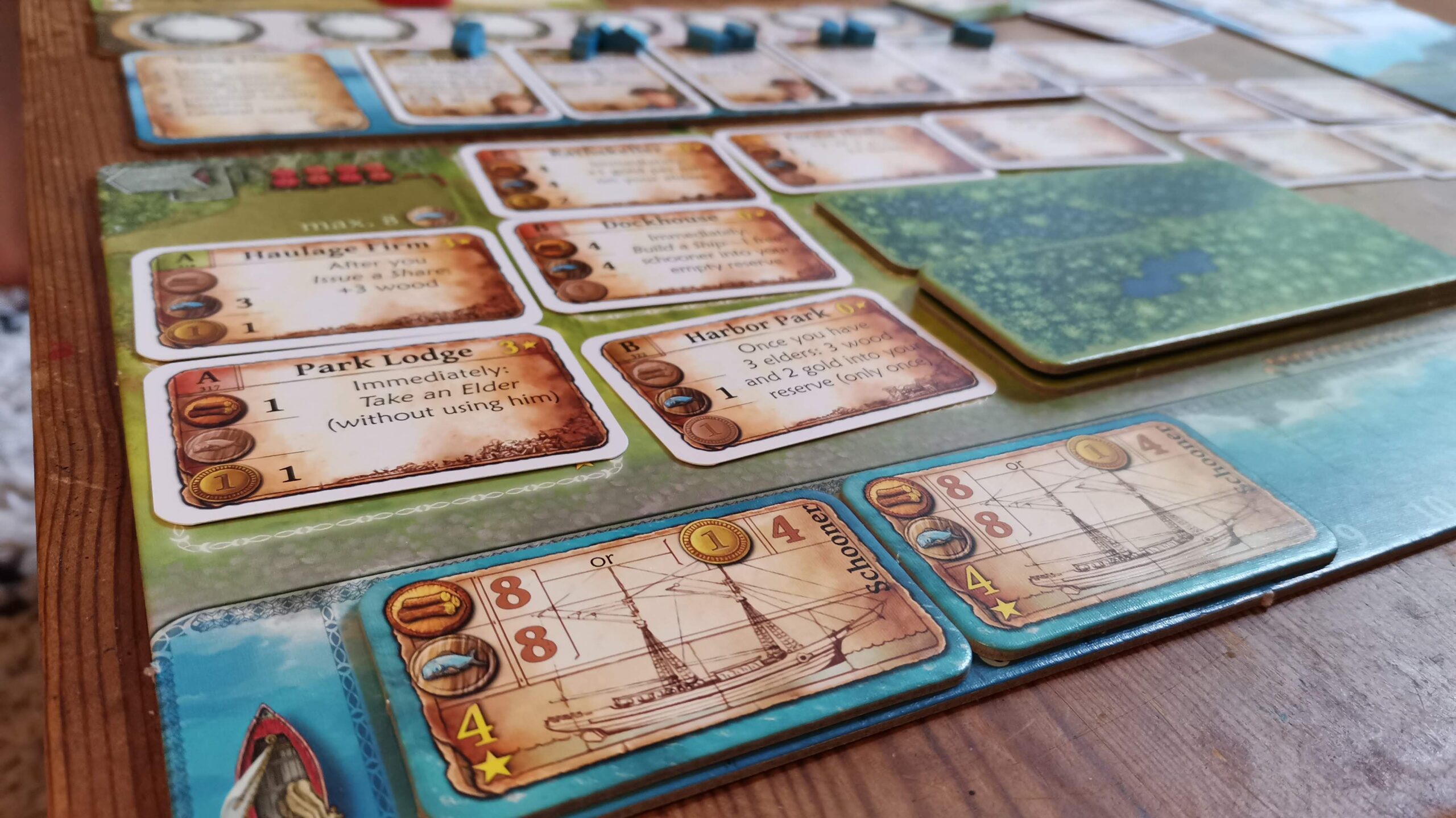
Nusfjord is a special game for me, so maybe there’s a bit of bias with it being this high up, I’m not sure. It’s the first heavy game I bought when I got properly back into the hobby this year, and quite honestly, I’ve enjoyed every game I’ve played.
It’s probably not mentioned in the same breath as Uwe Rosenberg’s more well-known titles like Agricola, A Feast For Odin or Caverna, but in my opinion it ought to be. It’s a worker-placement game, which is my favourite mechanism, and it features Uwe’s now-signature style of modular boards setup. It’s great, because it means you can make it fit to your table, whatever the size or shape.
Using all three decks included in the box means there’s loads of variety and replay value, and while it’s great fun just playing a game, the more I play it, the more I find that the campaign mode in the back of the rule book is the way it should be played. The solo mode is fantastic, the game is fast and fun, and like all the best Rosenberg games, you can learn it in one play and never need the rule book again. The man’s a genius, and this charming game of running a fishing village in Norway is a prime example of exactly that.
Read the full review here.
2. Paladins of the West Kingdom (2019)
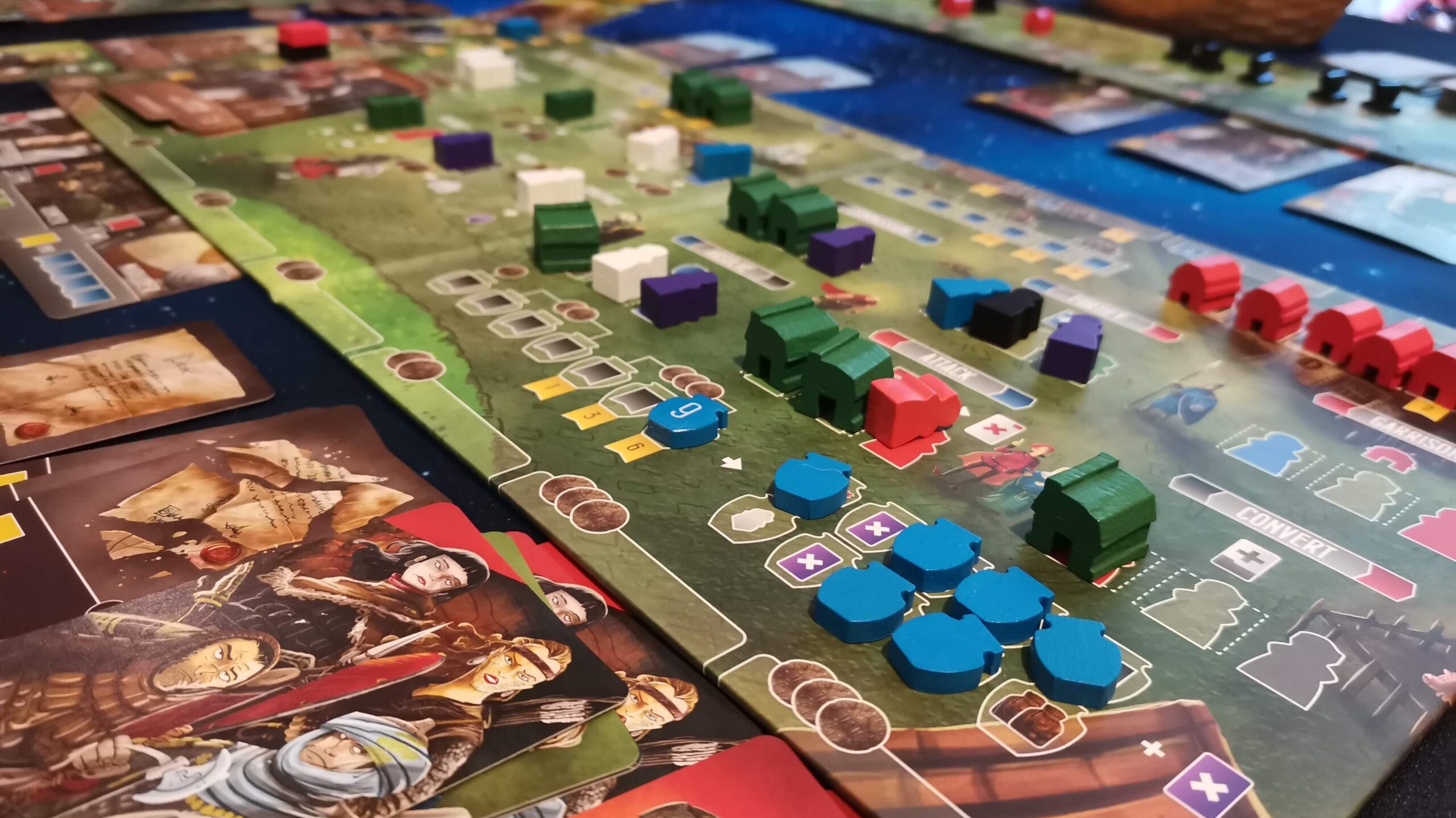
There we are, the unmistakable combination of the artwork of Mihajlo Dimitrievski, and the Garphill Games logo in the corner. If anyone knows me, they probably expected one of these in here.
Paladins of the West Kingdom is an absolutely brilliant game, with its sort of worker-placement, sort of card-drafting, sort of market mechanics, and a really nice system that unashamedly and explicitly outlines the concepts we all hold dear in a good Euro; use black to increase red, use red to increase blue, use blue to increase black etc.
No choice is easy in Paladins, there’s so much you can do, and if you do it well, most tactics can win you the game, but the race to claim spots on the main board, or recruit townsfolk and outsiders makes it feel quite interactive. In a stark contrast to something like Merv, for example, your player board is where your focus is, and that’s reflected by the comparatively tiny main board in the middle of the table.
The solo mode, as with all the Shem Phillips games I’ve played, is really good, and really feels like playing a human opponent. More clever game design allows your automa opponent to have variable difficulty levels too, so it’s a great way to learn the ropes. Whether this is the West Kingdom game that makes it to next year’s list or not remains to be seen. I’m really enjoying VIscounts of the West Kingdom at the moment, but it’s early days.
Brilliant, brilliant game. I love it.
Read the full review here.
1. Sherlock Holmes Consulting Detective: The Baker Street Irregulars (2020)
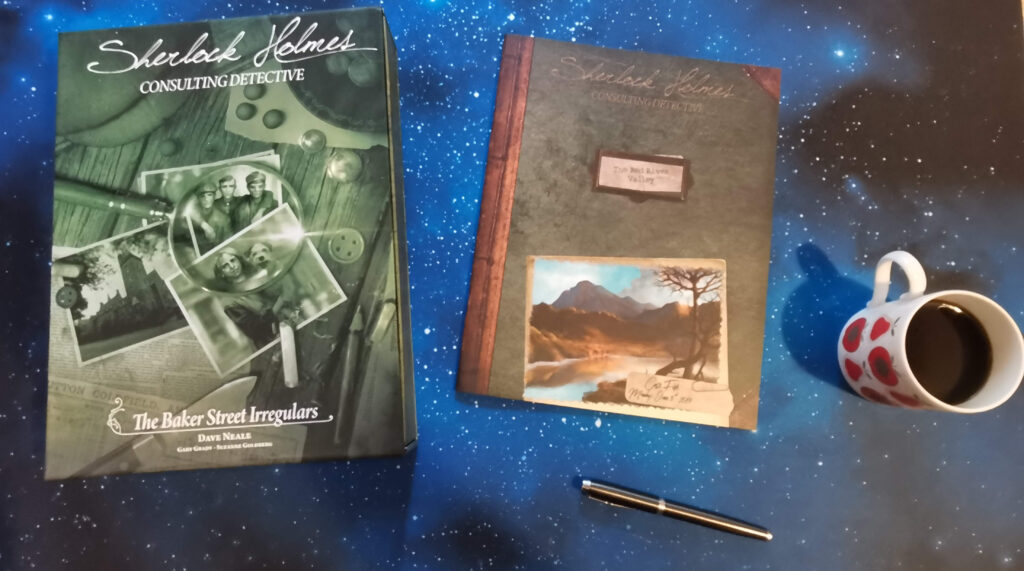
Well, well, well. Mister Heavy Euro chooses a number one which isn’t even a board game? What’s that all about? I’ll tell you what that’s all about. The Baker Street Irregulars is an absolutely incredible combination of brilliant writing, clever mysteries, and wonderful presentation.
If you’ve never experienced a SHCD game before, this is where to start. People who’ve played all four boxes available say this is the best, and I can see why. I’ve never played anything like it really. The game is entirely driven by you, the reader, the detective. You decide when you’ve amassed enough clues and think you have the solution to the mystery, so you dictate how long it takes, and how far down the rabbit hole you go.
Through a combination of a book for each chapter of the game (ten in total), a map of London, a copy of the Time newspaper from the day in question, and a directory of people and places, you set out to solve a mystery, and maybe a side-mystery at the same time. Choose where to go, who to talk to, collect evidence and clues, and then go to see Sherlock and see how your solution compared to his.
This game was a revelation to me during the first lockdown. It’s a fantastic way to unwind of an evening, settling into a chair with a notebook and pen, a glass of something strong, and getting thoroughly absorbed in 19th century Holmesian London. Some cases I did well on, some not-so-well, but every time I had a really fulfilling couple of hours of entertainment. You can play this as a group, but it works perfectly as a solo exercise too.
Dave Neale’s writing throughout is astounding. It really feels like it could have been part of the original stories. The illustrations are evocative and capture the atmosphere of the time, and the quality of everything in the box is top-notch. I love the subtle Easter eggs in there too. I’m a big fan of mystery stories, especially locked-room mysteries, and I had the biggest grin when I saw Dr Gideon Fell in the directory. He’s the star of a series of books by the master of locked-room, John Dickson-Carr.
Sherlock Holmes Consulting Detective: The Baker Street Irregulars is an exceptional game, well deserving of my number one pick for the year, and I’d recommend it to you and anyone who’ll listen to me for two minutes. Whatever wins next year’s top ten has a high bar set for it.
Read the full review here.
Honourable Mentions
These games just missed out on the top ten, but are all great. They’re in no particular order, and linked to reviews where I’ve written them.
Watergate, Aeon’s End: Legacy, Spirit Island, Everdell, 6 Nimmt!, PARKS, Great Western Trail, Ganz Schon Clever, Bonfire, Terraforming Mars.
